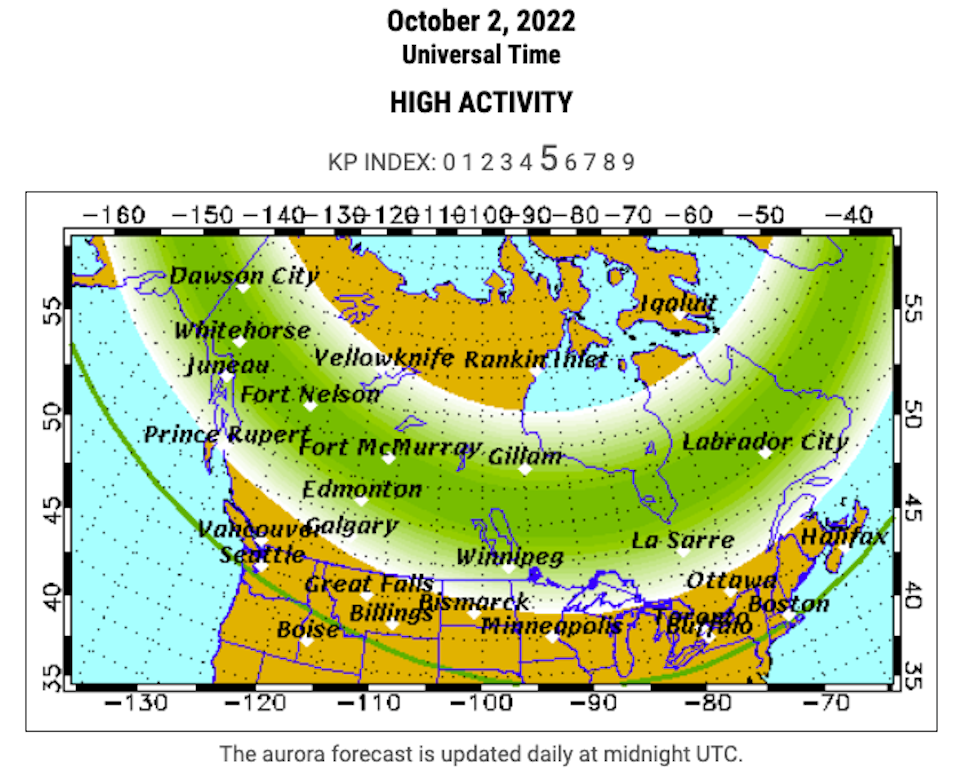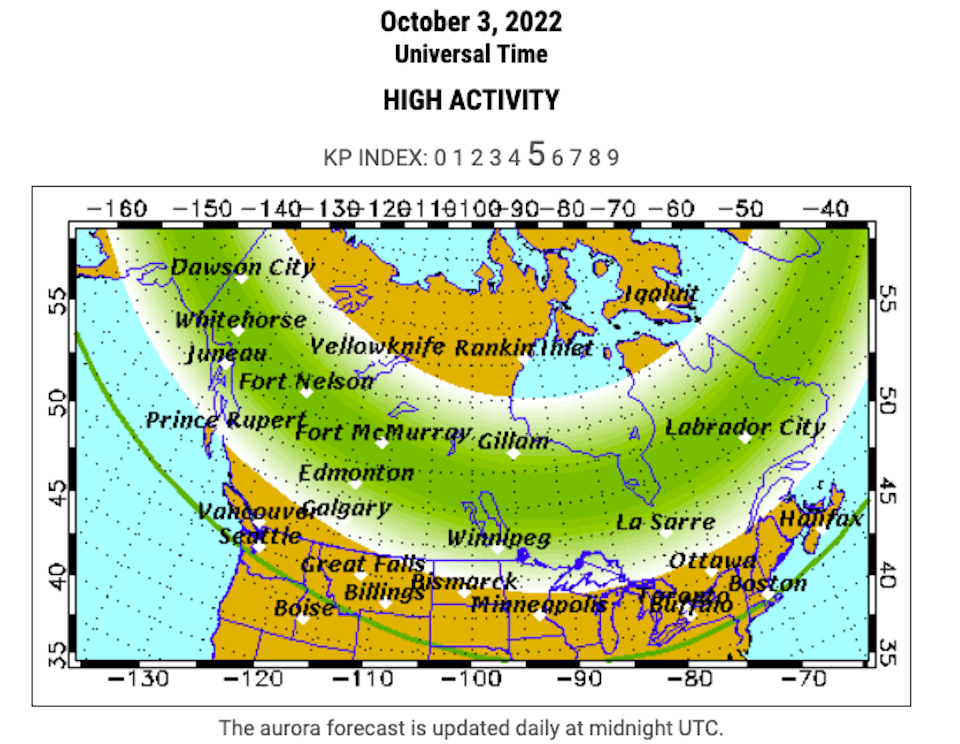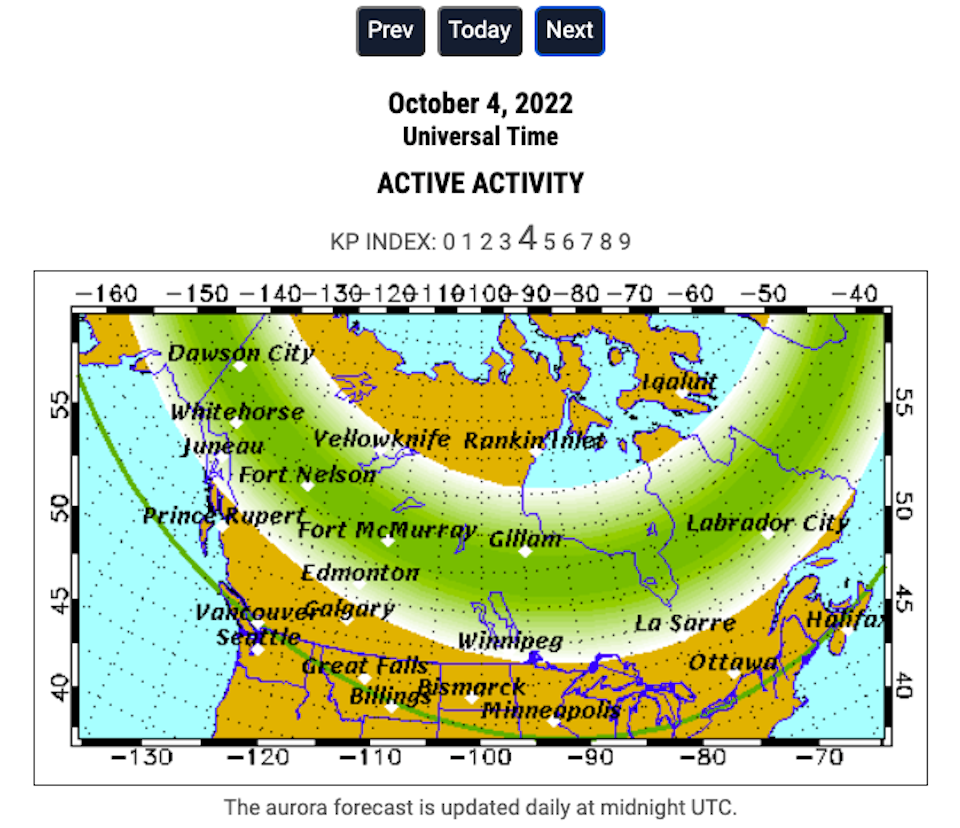Northern lights forecast: How to view them in Vancouver now
Sky watchers, rejoice.
If you missed Jupiter’s once-in-a-lifetime appearance last week, you may have the opportunity to spot some sublime astral manifestations this week.
Metro Vancouver skywatchers may have a handful of chances to spot the Aurora Borealis in their communities in the new few days due to blustery space weather.
The National Oceanic and Atmospheric Administration (NOAA) Space Weather Prediction Center has issued a G1 (Minor) geomagnetic storm warning for October 1-4.
Aurora activity will be high on Sunday night (October 2nd). According to the University of Fairbanks (UAF), active auroras will be visible from Inuvik to Thunder Bay, Ontario and to places south of the border including Seattle, Chicago and Boston. That means people in Metro Vancouver will have a chance to see the green glow.
The university’s online Aurora Monitor Map shows which regions the aurora’s green glow is likely to reach, as well as other areas where it’s less likely. Additionally, below the map, there is a brief description of Aurora activity on that particular day. You can also switch to other days to view the forecast.
However, keep in mind that the aurora may not appear a brilliant green to your unaided eye. Instead, you can see a greyish formation in the sky.

On Monday, the Northern Lights forecast shows that high activity is also expected and active displays will be visible overhead in Vancouver as well as the other areas that were visible Sunday evening.

Monday’s aurora activity is expected to be ‘active’ rather than high. The Northern Lights will be visible overhead “from Inuvik, Yellowknife, Rankin and Iqaluit to Juneau, Edmonton, Winnipeg and Sept-Iles” and low on the horizon from Vancouver, Great Falls, Pierre, Madison, Lansing, Ottawa, Portland and St. John’s.”

Everything British Columbia residents need to know about watching the Northern Lights
Would you like to see the living, dancing lights in all their sublime, celestial glory?
Light pollution in major cities makes viewing the Aurora Borealis difficult, but not impossible under the right circumstances. That said, your best bet for seeing that hypnotic green glow is up north or out of town.
Since both clear skies and darkness are essential to see the Northern Lights, the best time is determined by the weather and sunrise and sunset times.
The moon is also very bright and can make seeing the aurora difficult, so lunar cycles should be taken into account. Photographing the colorful manifestation can also allow you to see it more clearly and bring out its vivid color.
- For more information and tips on spotting the Northern Lights, check out our comprehensive guide.